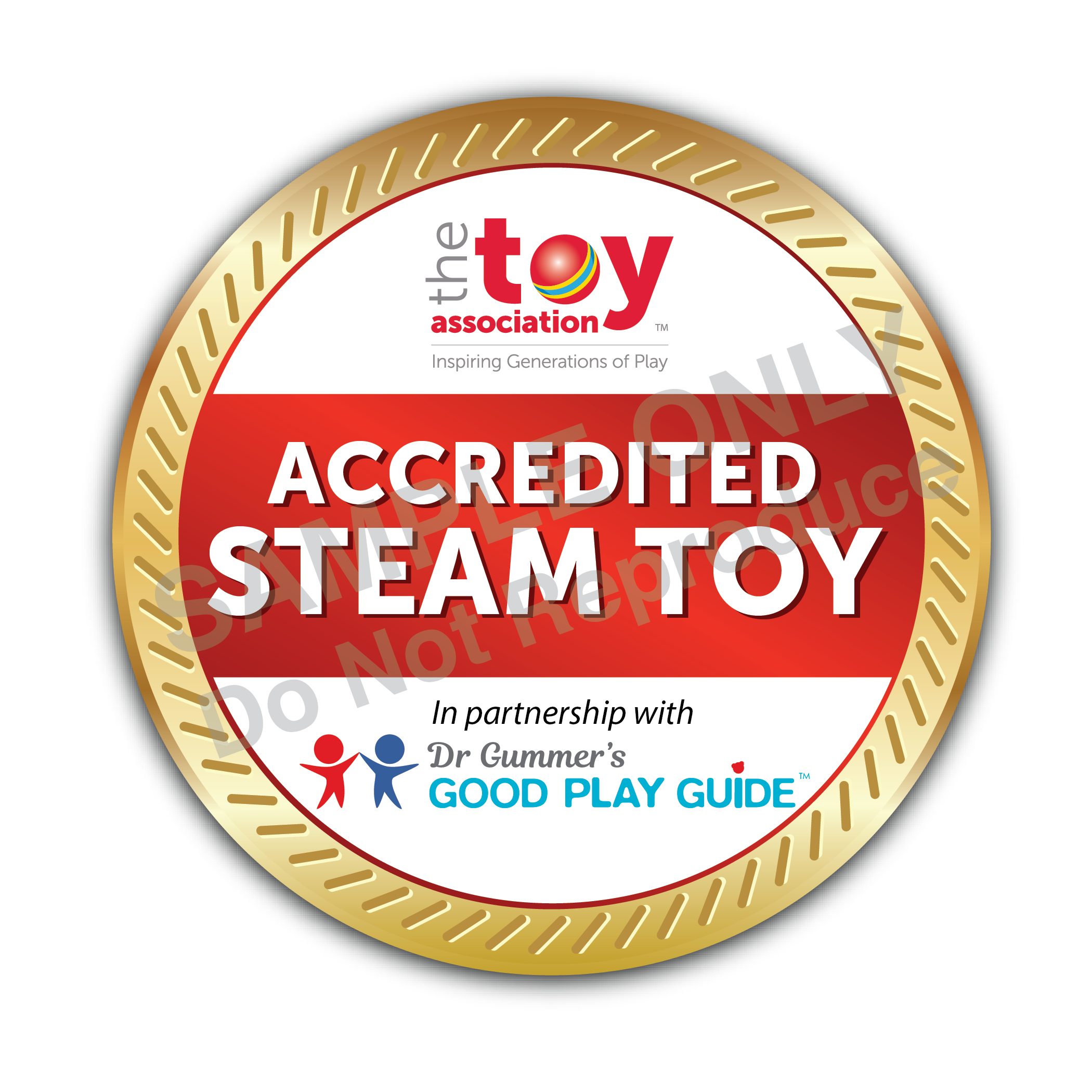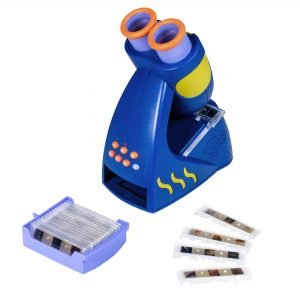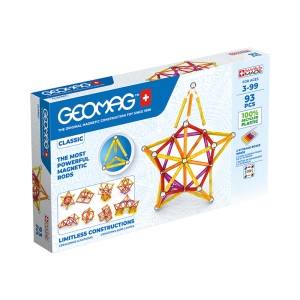Description
Explore tiny worlds full of huge discoveries with the Magic Adventures Microscope™. Young biologists can zoom in on flowers, animals, food, minerals and more using double-sided smart slides that activate amazing BBC videos and images. Discover answers to curious questions like: How do leaves changes colors? What do plant cells look like? What is sand made of anyway? Make your own discoveries by finding things around the house and getting a closer look using the reusable slides or large sample tray. You’ll be amazed what you can see with up to 200x magnification on this real microscope. See something incredible? Capture and save the on-screen images. Game time! Defend microorganisms from micro-invaders or put your skills to the test with the What’s This? quiz. Intended for ages 5+ years. Requires 4 AA batteries. Batteries included for demo purposes only. New batteries recommended for regular use.
What our testers said
” I love this! It has games, I can look at my own stuff, plus I can take pictures of my cool samples” – Boy aged 8
“I found cells” – Boy aged 7
What our experts think
Magic Adventures Microscope combines digital technology with a working entry level microscope. The set combines a comprehensive set of smart-slides, reusable slides to explore unique sample slides, and fun digital games that support learning about microorganisms. Our testers were fascinated by what they could see with the Magic Adventures Microscope – the “explore your own sample” slides were a huge hit, along with the smart-sides and game mode. The interactive and hands-on elements of the set were accessible and user-friendly for the entire 5 – 10-year-old age group. The visual and auditory information that can be accessed via the display panel and controls strongly support learning the targeted biological information. Magic Adventures Microscope sparks scientific curiosity, executive functioning, scientific vocabulary, and imagination. This microscope is ideal for both the classroom setting and learning with family.
Skills developed
– Supports scientific curiosity
– Develops cognitive skills
– Promotes language











